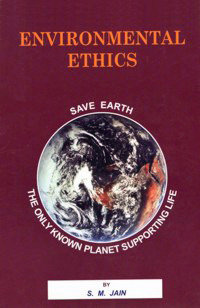The realisation that the survival of the human race is inextricably interlinked with ecological security of our planet has gathered strength over the last few decades. The perception that development can take place without any concern for the appalling devastation that we have visited on our fragile biosphere over the past many decades is no longer acceptable. Humanity, in its long and tortuous journey through the millennia, is now poised at a critical crossroads. While science and technology have achieved unbelievable progress and breakthroughs, continuing environmental degradation, extinction of hundred and thousands of plant and animal species, global warming, attenuation of the ozone layer that are looming menacingly over us have become major threats to the future of human race.
The present paradigm of development has accentuated the asymmetry between technology and the environment, inflicting virtually irreversible damage to our ecological security. The emerging ecological crisis is, undoubtedly, the end result of a deeper cultural crisis. The fast spreading consumerist culture tends to reduce nature to an object shorn of its sacred purpose. It is increasingly clear that the survival not only of human race but also of all life forms on this planet now turns on a deeper spiritual and moral reawakening. There is the urgent need for humanity at large to draw upon the resources of its accumulated wisdom and cultural heritage that have for millennia guided great civilisations around the world.
From this perspective, the precepts of environmental ethics need to be re-inculcated in our lives and thoughts as a substantive underpinning of our worldly actions. That calls for a deeper understanding of these precepts and their intricate linkages with economic development. Implicit in the holistic vision of human development is the complementarity of environmental ethics together with social equity and economic growth. The subject of environmental ethics is of growing importance. In this context, Shri S.M. Jain’s treatise on “Environmental Ethics” well serves the purpose of recreating the lost awareness about the ethical bases of the environment. I commend it to policy-makers, teachers and the general public.
Sgd. Karan Singh
Kartik Purnima
15 November 2005
Dr. Karan Singh | 3, Nyaya Marg, |
Member of Parliament | Chankyapuri |
(Raja Sabha) & | New Delhi - 110021 |
Chancellor, Jawaharlal |
|
Nehru University |
|
 S.M. Jain
S.M. Jain
